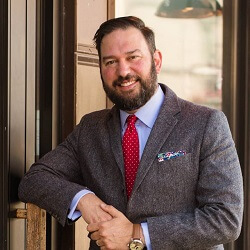When one person’s negligence, or carelessness, causes a car accident, victims can file a personal injury claim against them to recover financial compensation. Compensation in these cases includes damages for medical expenses, lost income, pain and suffering, and more.
To successfully claim damages, accident victims must prove their case to the insurance company and in some cases, the courts. Witness statements are very important pieces of evidence that can greatly strengthen an accident claim.
Below, our accident lawyer explains the different types of witness testimony used in these cases and the importance of witness credibility.
Injured in a Car Accident Due to a Negligent Driver? Contact Us Today
Types of Witness Statements in Car Accident Cases
Two types of witnesses can provide testimony in a car accident case. These are expert witnesses and eyewitnesses.
Expert witnesses are used in personal injury cases that are quite complicated. For example, if a drunk driver drove through a red light and smashed into someone legally traveling through an intersection, that is not a very complex case. An expert witness would likely not have to be used in this case.
However, if an accident occurred when one driver was making a legal turn and another driver was legally traveling through an intersection, the fault may not be as clear-cut. In this case, an expert witness may be necessary.
Medical professionals are often used as experts who can speak to the injuries an accident victim has suffered and the impact on their lives. Other expert witnesses used in accident cases are often people experienced with engineering, physics, and other sciences.
These individuals often help reconstruct the scene of the crash to determine how it happened and which party was negligent.
Eyewitnesses, on the other hand, are not experts. However, they can provide a third-party account of how the crash occurred and they can remain objective.
Eyewitnesses play no part in the actual accident, and they do not have any relation to the injured individuals or negligent parties. As such, their opinion is very valuable because they have no bias and no stake in any claim that is filed.
An objective eyewitness who can provide important evidence in a car accident claim may include:
- Pedestrians
- Other drivers
- Business owners located near the site of the crash, or their customers and employees
How Do Witness Statements Impact a Car Accident Case?
Witness statements are incredibly important to a car accident case because they are considered important pieces of evidence that can prove another party was negligent.
For example, a negligent driver may try to blame the fact that they did not stop before crashing into someone on defective brakes. The driver may even go so far as to tamper with their brakes so they can show they were defective.
One witness will help accident victims claim the full compensation they deserve. When multiple eyewitnesses can all testify to the same facts and say they all saw the same thing, it will strengthen a case even more.
It is for this reason that it is critical to always locate eyewitnesses after a crash and to exchange contact information with them afterward. This way, your lawyer can locate them while they are working on your case and obtain their statements.
Unfortunately, not all eyewitness statements are considered equal. The strength of an eyewitness’ statement will depend on how credible the witness is.
Factors that Impact the Credibility of Witness Statements
Eyewitness statements are useful when filing a car accident claim, but the other side is likely going to try and attack the credibility of the witnesses.
Certain factors, such as if the eyewitness has a criminal record, a reputation for being dishonest, or cognitive problems that cause them to become easily confused are obvious factors that could discredit a witness. However, there are other factors, as well.
These include:
- Role of the witness: Other drivers not involved in the crash are sometimes useful witnesses. Sometimes though, they are not. If the driver was another motorist who knew one of the parties involved, the insurance company and the courts would likely assume they were biased and not give their statements much weight. Even when another driver did not know any of the parties involved, the fact that they were likely concentrating on their driving and surroundings may make them less credible.
- Distance from the accident: It is natural to assume that the closer an eyewitness is to the accident scene, the more credible their testimony is. That, however, is not the case. Eyewitnesses who were very close to the crash may have been too concerned with their safety to act as credible witnesses. Another witness who was further away, but still close enough to see what happened, maybe considered more credible.
- Consistency of statements: Witnesses sometimes have to provide their statements at several different times after the crash. For example, they may have to provide a statement to the insurance company and later testify in court. If the witness’ statements continue to change over time, they will likely not be viewed as very credible.
- Amount saw: How much of the crash a witness saw will play a huge role when determining how credible they are. For example, a pedestrian standing on the sidewalk that saw the entire event unfold would likely be considered much more credible than another pedestrian who only saw the aftermath of the collision.
Our Lawyers Can Collect Witness Testimony
At MG Law, our lawyers know how to collect expert and eyewitness testimony to strengthen your case so you collect the full and fair damages you deserve.
Call us today at 770-988-5252 or contact us online to schedule a free consultation and to learn more about how we can help.

